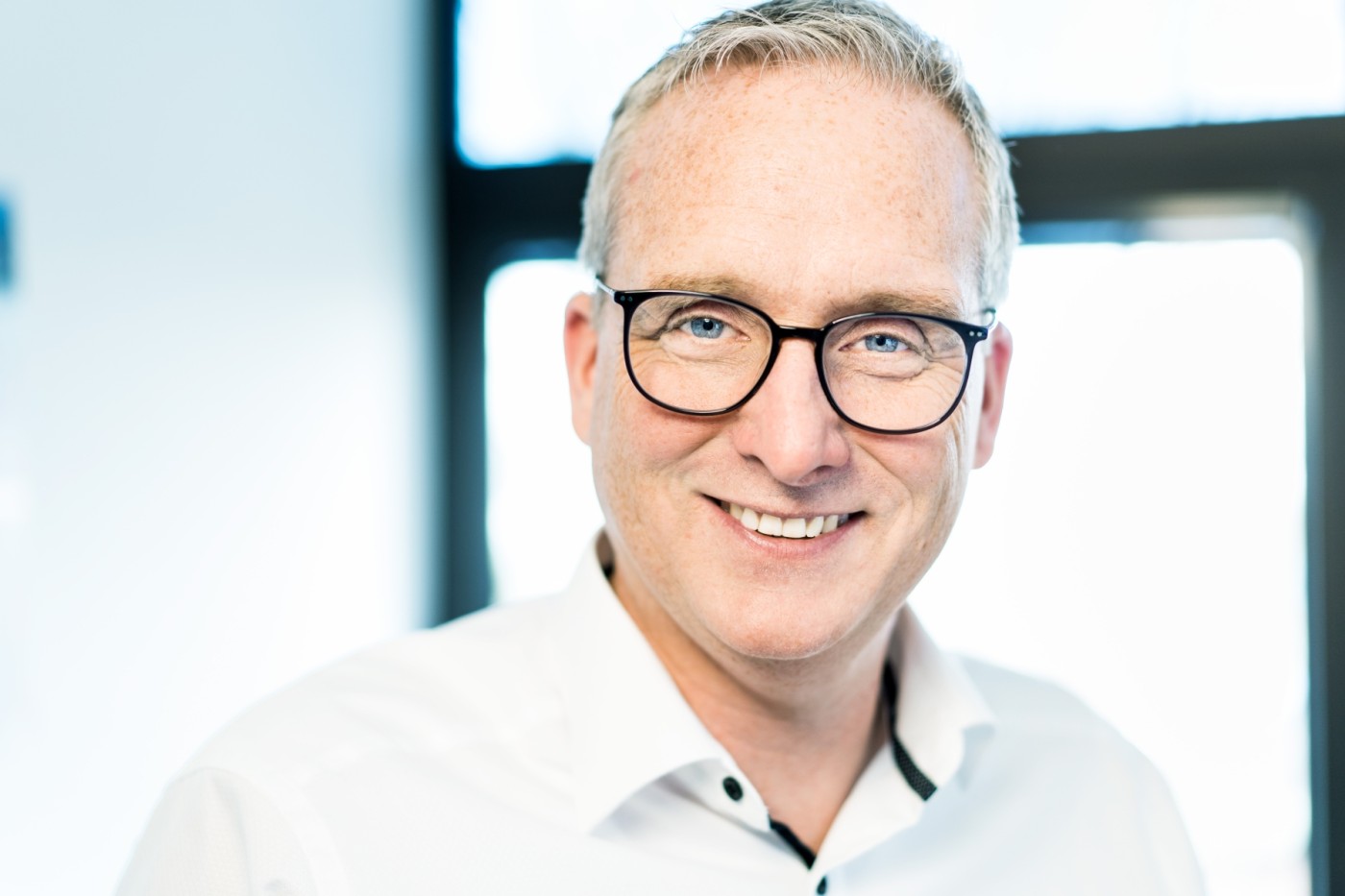Sharpen your profile. Demonstrate your expertise.
Our internationally recognized certification programs in the areas of Requirements Engineering and Digital Design open the way for you to expand and document your knowledge in highly topical key disciplines.
The practical content has been developed by experts experienced in their field. The certificates put you at the top of your field.
Certificates awarded are valid for life, offering you enduring recognition.
CPRE certified professionals work in a focused and successful manner
Requirements are the central currency in all development projects. Professional Requirements Engineering is the means of choice for you as a business analyst, developer, project manager, tester or employee in related areas. The CPRE training content teaches you how to deal with requirements in a focused and confident manner - in both traditional and agile environments. The common understanding of Requirements Engineering and RE terminology will also support your work in international teams.
-
Level 1 | Foundation
Getting started: Mastering the basics, knowing what is important
-
Level 2 | Practitioner
The focus: Concentrating on one area of Requirements Engineering - elicitation, modeling, management or agile work
-
Level 3 | Specialist
The specialization: Targeted implementation of methods and techniques from the acquired specialist knowledge in practical application. Demonstrate that knowledge creates success.
-
Level 4 | Expert
The master title: In-depth knowledge and practical experience from all areas of specialization are applied and form the basis for success - both professionally and in projects
Knowing what to do - your CPRE certification
Become a professional in one of the key disciplines - Requirements Engineering.

As a CPRE, I have the necessary knowledge to constantly deliver fit-for-purpose software requirements. Another result of applying the methodology is the raising of the bar in the Business Analysis department.
Ana Vasilescu
CPRE certified professional
Digitalization competence - the DDP as an opportunity!
Complexity and opportunities are rapidly increasing in the course of digitalization. For the future, this means thinking bigger and further - but how? The solution lies in bundling design expertise, material expertise and crosscutting skills in one person, the Digital Design Professional!
-
Knowing what works
The DDP Foundation Level provides an overview of the type and use of various digital technologies.
-
Understanding digital as a material
The DDP Foundation Level shows the opportunities that arise when modern technologies are understood as digital design material - shapeable and combinable for innovative solutions.
-
Provide orientation
The DDP Foundation Level takes a holistic approach by integrating technology, business and user perspectives - thinking outside the box.
-
Recognize new business models
The approach shown in the DDP Foundation Level almost inevitably delivers new business models. There are opportunities with enormous business potential beyond the horizon. Recognizing this provides enormous added value.
It's time to think of digital differently - join us!
Close the gap between the increasingly complex design challenges of digitalization and the required technical design skills. Use the DDP certification program for yourself.

Ever since I first heard about Digital Design as a new profession a few years ago, I have been convinced that it could fill a gap that existed in software development. The new curriculum is very demanding - especially in terms of self-study - but in my view, has exactly the right complexity and content to be effective, especially in large transformation projects.
Ingo Waclawczyk
DDP certified professional
Knowledge - from the IREB community for you
With more than 100 articles, RE the magazine offers you access to an extensive pool of knowledge with real practical relevance. It is international, appears online and is free of charge - a unique source on Requirements Engineering, Business Analysis and agile concepts on the World Wide Web.
-
Expert knowledge and practical relevance as an objective
All articles are edited by a top-class editorial board and checked for quality and practical relevance - we are interested in knowledge and experience, not “stories”.
-
Independence as a credo
There is no advertising, the articles are not monetarily sponsored. In this way, IREB as publisher ensures the independence of each article.
-
Openness as an opportunity
RE is not only extremely demanding, but also very diverse. It is important to do tribute to this diversity and the Editorial Board is correspondingly open when it comes to submitting articles. There is an opportunity for something new in every article!
-
Community in focus
All articles are written by the community for the community. As is so often the case here too: The interaction of all is more than the sum of individual knowledge. On the one hand, the magazine should be an expression of what the community has to offer and, on the other, a motivation to get involved and exchange ideas.
Quality for your project success
Benefit from the latest findings and best practices from the world of Requirements Engineering - high-quality information and ready to use!

By sharing best practices and innovative approaches, RE the magazine helps not only to design projects more efficiently, but also to develop sustainable, future-proof solutions. My team and I like to use it as a central source of knowledge
Thomas Bommes | Senior Consultant
Dr. Glinz COViS GmbH, Düsseldorf
A small selection of highly recommended articles
The importance of active listening in the role of a Business Analyst
Author: Karolina ZmitrowiczThe International Institute of Business Analysis (IIBA) defines business analysis as “the practice of enabling change in the context of an enterprise by defining needs and recommending solutions that deliver value to stakeholders” [1]. This process relies heavily on effective communication and understanding of stakeholder needs, with particular emphasis on active listening. In this article, we will explore why these skills are essential for business analysts and how they can overcome some typical barriers to active listening. We will also highlight the benefits of these practices in fostering better relationships and creating a positive work environment.
Modeling Requirements with SysML
Author: Pascal RoquesIn this paper, we will show how the SysML modeling language can be useful to complement the requirements process, i.e. to better define and trace requirements. The Systems Modeling Language (SysML: www.omgsysml.org) is a general-purpose graphical modeling language, defined by the Object Management Group (OMG), based on the well-known Unified Modeling Language (UML: www.uml.org). It is used for specifying, analyzing, designing and verifying complex systems, and is designed to provide simple but powerful constructs for modeling a wide range of systems engineering problems. It is particularly effective in specifying requirements: the structure, behavior, allocations and constraints on system properties that support engineering analysis.
The goal is to solve the problem
Authors: Hans van Loenhoud, Kim Lauenroth, Patrick SteigerA requirement is "a condition or capability needed by a user to solve a problem or to achieve an objective" (AKA a goal), see the CPRE Glossary [Glinz 2014]. Thinking in terms of problems and goals thus is a core competence for the requirements engineer.
But what in fact is a problem or a goal? This may seem to be a rather philosophical question. As requirements engineers we should be quite specific on this point as the problems and goals of our clients are the raison d'être for our work. In this article, we start from a theoretical viewpoint: we critically explore the concepts and look into the relation between problems and goals through solutions. We will also pay attention to their recursive nature. We will end up with several (slightly provocative) thoughts on the subject, including practical implications for the work of the requirements engineer.
Stay up to date!
You are not always active on social media, but still want to stay up to date? Sign up for our newsletter and receive the latest information on innovations, upcoming events and webinars - all about IREB, DDP, CPRE and RE the magazine. IREB is active worldwide, which is why the newsletter is published in English.



